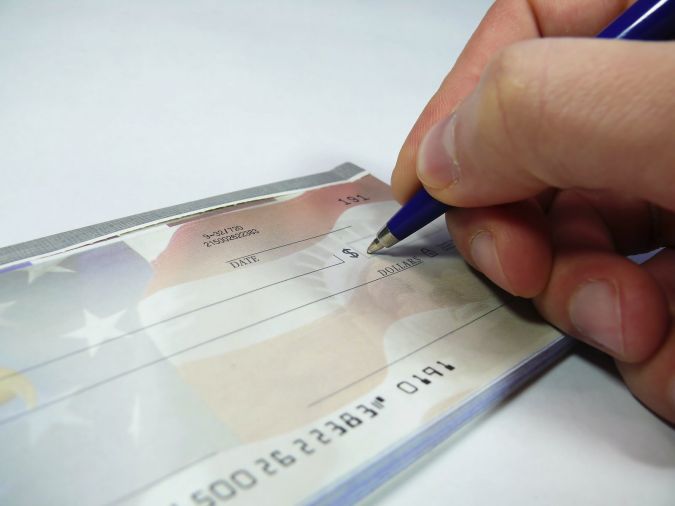With the decrease in expenses and technical barriers, it’s possible today for almost any political candidate to raise money online. However, it takes a bit of planning to properly set up your donation infrastructure. And if you wait to begin the process, you may lose out on valuable fundraising time.
If you plan to do online political fundraising this election season, start early. Or as early as you can. There may be laws limiting when you can solicit political donations. It’s best to understand those rules before you begin campaigning activities.
How to accept online political donations:
- You need a bank account for your campaign
- You need a payment processor
- You need a campaign website
- It takes time for your account to be approved
- You may not receive your money immediately
- Costs are not the only factor
- Should you use a generic payment like PayPal or Stripe?
- Your campaign is responsible for following the law
- Plan your fundraising strategy

Get our Online Campaign Tips Guide.
It’s FREE right now!
You need a bank account for your campaign
Setting up a campaign bank account is one of the first things a political organization must do. A stand-alone account allows you to collect donations and contributions from supporters in order to make campaign purchases. This is a critical step in setting up an online donation program. You’ll need that bank account in order to continue to the next important step…
You need a donor payment processor
A third-party processor lets you accept online donations without having a merchant account of your own. Instead, the processor let you use their merchant account under their own terms of service, usually with very little setup required. A variety of fundraising and payment processors exist, and a number of donation platforms are designed specifically for political purposes. They include Anedot, Raise the Money, ActBlue, and WinRed.
With online fundraising, there are no hassles of collecting checks and cash, making regular trips to the bank, or keeping accurate records. Fundraising services solve this problem. They both save you time while managing donations to your account and tracking the numbers for you. When your contributions clear, the funds are automatically deposited into your checking account. This makes your required state or FEC financial reporting and disclosures easier. Your treasurer will thank you!
Recommended Reading: Comparing Political Donation Platforms: Our Recommendations

You need a campaign website
Any non-profit or political campaign needs more than just a Facebook page or a link to a donation page. Considering the role of trust in political campaigns, it’s important to provide a central website for donations. A website builds trust. Providing potential donors with a single domain name to look up makes it easy for contributors to find you.
Online donation services provide ways to set up donations through a website. It can be something as simple as a link from the site to the service’s donation page or embedded donation forms that match the website’s look and feel. Some donation platforms (more on this below) provide tools to integrate the ability to donate through social media accounts.
A good political campaign website is one of the best tools in your fundraising efforts. The site’s design needs to look clean and inspire trust. SSL security is a must, and it should have a terms of use page. Your donation form itself should list any donation limits and disclaimers required for campaign compliance. Setting up a domain and website is not expensive and may be the best money you spend on your campaign.
For affordable and flexible website design and hosting options, check out our Candidate Website Packages.

It takes time for a fundraising account to be approved
It varies by processor, but it can typically take anywhere from 3 to 7 days to get your credentials verified by the vendor. You will need to supply specific organizational and, in some cases, personal documentation. Some services might allow you to begin taking donations before that time, but no money will be transferred to your campaign bank account until you are approved. This is another reason to get the process started early.
You may not receive your donations immediately
Online donations do not immediately appear in your bank account. There is typically a processing delay, as with any bank transaction.
Some processors will transfer your money automatically. But this is not always the case. With PayPal, for example, you’ll need to manually transfer money from PayPal to your bank account. Other services may transfer funds automatically, but there is typically a few days’ delay from the actual donation date.
Some vendors allow for recurring contributions. This allows you to have a donor automatically contribute on a regular basis throughout the election season. This can work well for smaller donors who might not be able to give a large amount all at once but can contribute a significant amount over time.
Costs are not the only factor in choosing a vendor to collect donations
Which payment vendor is better – a platform that charges a transaction cost of 3% or one that charges 6%? It’s easy to assume that the lower your transaction cost, the more money you will make. But fees don’t tell the whole story. More ‘expensive’ and politically-geared processing vendors tend to have more built-in tools. These include recurring payment options, custom contribution pages, social media widgets, and online viral tools.
Bringing in more from political fundraising websites can more than offset higher processing fees.
Additional contribution tools can lead to more and larger donations. Both of which will put more money into your campaign, even after accounting for higher transaction costs. Of course, those tools and resources will only work to your advantage if you actually use them…
Advantages of political donation platforms:
Political donation platforms provide transparency and accountability, which is a major advantage over traditional methods of donating. They also provide other features to make the donation process more effective, including the ability to:
- Create dedicated donation and event forms customized to match your campaign branding.
- Have one-time or recurring donation options to allow multiple donations throughout the campaign.
- Social media integration to share updates and spread the word.
- Text-to-give and email-to-donate tools.
- Set contribution limits and add custom disclaimers to your forms.
TIP: Use a processor that doesn’t charge any monthly fees or setup costs. See our campaign resources page.
Put a strategy in place to use the tools with different marketing channels through which you can raise money. That includes your website donation page, social media accounts, and online advertising. Donors should be able to save their information so they can return later to contribute again and again. A recurring-contribution option allows contributors to give regularly right up to Election Day. This helps increase overall donations and makes them easier to process as the contributions are made automatically throughout the election season.
Take advantage of recurring donations
According to a recent Classy report, recurring donors were worth 5.4 times more over their lifetime than one-time donors. If the donation platform for your campaign allows for recurring donations, make sure you take advantage of that feature.
A recurring donor is much more valuable than one-time donors. Those recurring funds will be especially valuable toward the end of your campaign as you ramp up your get out the vote efforts.
Tip: Make sure you have recurring contributions turned off by Election Day!
Should you use a generic payment service like PayPal or Stripe?
Some organizations try to use generic payment systems like PayPal, Square, Venmo, or Google Shopping Cart for political purposes.
Generic payment services do not make the best political donation platforms, and here’s why:
Generic payment processors are not the best way to collect donations. Those services do not easily comply with Federal Election Commission or state donor requirements. For example, they do not ask for a donor’s employer, occupation, or contact information.
For these reasons, we do NOT recommend setting up site like PayPal for political donations. Website contributions are more complicated due to additional information that political campaigns require. This donor information can be captured through PayPal with custom programming. But that’s not something a small campaign usually has the time or resources to implement.
Another problem with vendors like Square, Venmo, Apple Pay, and Google Pay is that you don’t receive your donations at the same time that the donor’s card is processed. You get the money from the aggregator based on their specific terms. That could be on a monthly schedule, every two weeks, or even based on having a specific amount in the account. When someone donates, your campaign will need the money ASAP. Delays in cash transfers to your bank account can prevent money from being spent on advertising and print materials when it’s needed most.
It’s a better idea to choose a service that caters to political organizations. They include ActBlue, Raise The Money, Anedot, FundHero, and more. They include built-in tools and social media integrations. All of these services listed are frequently used by our own clients. You’ll want to compare fees, features, and reviews when deciding which to choose. If you need a recommendation for setting up your website, contact us.
Your campaign is responsible for following the law
Again, local election laws vary from state to state, and from office to office. There are restrictions ranging from when you can start election fundraising, how much you can raise, from whom you can raise money to donor disclosure rules.
Some laws depend on the municipal office you are running for. For example, judges may not be allowed to participate in campaigning activities, including soliciting donations, during particular times they are in office.
The Federal Election Commission (FEC) requires federal political campaigns to use their best efforts to collect and report the name, mailing address, occupation, and employer of individuals whose contributions exceed $200 in a given election cycle. PACs and political parties have additional disclosure and compliance requirements.
You are responsible for providing proper disclaimers and restrictions when taking donations online. Know the law and follow it to the letter. That will keep you out of trouble.
Plan your online political fundraising strategy
Now you know the basics of how to accept political donations online. It makes no difference whether you’re running for a state office, Congress, mayor, or even your local city council. Just as you may have offline fundraisers and events, you’ll need to supplement those activities online with a way to collect donations through the web. You’ll need to set up a clear plan for how you will accept and track those donations.
While you can solicit donations via email and social media, you’ll still want website as a central hub for your online fundraising efforts. Special landing pages can collect political online donations from various channels. Knowing where the money is coming from and what promotional efforts are the most successful will help guide your strategy.
If you are ready to start, get to it! Your donors are waiting…
Online Candidate campaign websites can tie in with any fundraising service you choose. With built-in tools and exclusive resources, we are the choice for hundreds of campaigns every election cycle.
« Political Campaign Tip: Use A Consistent Ballot NameA List of Our Best Election Slogans »
Tags: paypal, political donations







